- Home
- Vladimir Nabokov
Look at the Harlequins! Page 2
Look at the Harlequins! Read online
Page 2
3
To return to Carnavaux, to my luggage, to Ivor Black carrying it, with a big show of travail, and muttering comedy stuff in some rudimentary role.
The sun had regained full control, when we entered a garden, separated from the road by a stone wall and a row of cypresses. Emblematic irises surrounded a green pondlet presided over by a bronze frog. From under a curly holm oak a graveled path ran between two orange trees. At one end of the lawn a eucalypt cast its striate shade across the canvas of a lounge chair. This is not the arrogance of total recall but an attempt at fond reconstruction based on old snapshots in an old bonbon box with a fleur-de-lis on its lid.
It was no use ascending the three steps of the front entrance, “hauling two tons of stones,” said Ivor Black: he had forgotten the spare key, had no servants to answer bells on Saturday afternoons, and as he had explained earlier could not communicate by normal means with his sister though she had to be somewhere inside, almost certainly crying in her bedroom as she usually would whenever guests were expected, especially weekenders who might be around at all hours, well into Tuesday. So we walked round the house, skirting prickly-pear shrubs that caught at the raincoat over my arm. I suddenly heard a horrible subhuman sound and glanced at Ivor, but the cur only grinned.
It was a large, lemon-breasted, indigo-blue ara with striped white cheeks squawking intermittently on its bleak back-porch perch. Ivor had dubbed it Mata Hari partly because of its accent but chiefly by reason of its political past. His late aunt, Lady Wimberg, when already a little gaga, around Nineteen Fourteen or Fifteen, had been kind to that tragic old bird, said to have been abandoned by a shady stranger with a scarred face and a monocle. It could say allô. Otto, and pa-pa, a modest vocabulary, somehow suggestive of a small anxious family in a hot country far from home. Sometimes when I work too late and the spies of thought cease to relay messages, a wrong word in motion feels somehow like the dry biscuit that a parrot holds in its great slow hand.
I do not remember seeing Iris before dinner (or perhaps I glimpsed her standing at a stained window on the stairs with her back to me as I popped back from the salle d’eau and its hesitations to my ascetic room across the landing). Ivor had taken care to inform me that she was a deaf-mute and such a shy one, too, that even now, at twenty-one, she could not make herself learn to read male lips. That sounded odd. I had always thought that the infirmity in question confined the patient in an absolutely safe shell as limpid and strong as shatterproof glass, within which no shame or sham could exist. Brother and sister conversed in sign language using an alphabet which they had invented in childhood and which had gone through several revised editions. The present one consisted of preposterously elaborate gestures in the low relief of a pantomime that mimicked things rather than symbolized them. I barged in with some grotesque contribution of my own but Ivor asked me sternly not to play the fool, she easily got offended. The whole affair (with a sullen maid, an old Cannicoise slapping down plates in the margin of the scene) belonged to another life, to another book, to a world of vaguely incestuous games that I had not yet consciously invented.
Both were small, but exquisitely formed, young people, and the family likeness between them could not escape one though Ivor was quite plain looking, with sandy hair and freckles, and she a suntanned beauty with a black bob and eyes like clear honey. I do not recall the dress she wore at our first meeting, but I know that her thin arms were bare and stung my senses at every palm grove and medusa-infested island that she outlined in the air while her brother translated for me her patterns in idiotic asides. I had my revenge after dinner. Ivor had gone to fetch my whisky. Iris and I stood on the terrace in the saintly dusk. I was lighting my pipe while Iris nudged the balustrade with her hip and pointed out with mermaid undulations—supposed to imitate waves—the shimmer of seaside lights in a parting of the india-ink hills. At that moment the telephone rang in the drawing room behind us, and she quickly turned around—but with admirable presence of mind transformed her dash into a nonchalant shawl dance. In the meantime Ivor had already skated phoneward across the parquetry to hear what Nina Lecerf or some other neighbor wanted. We liked to recall, Iris and I, in our later intimacy that revelation scene with Ivor bringing us drinks to toast her fairy-tale recovery and she, without minding his presence, putting her light hand on my knuckles: I stood gripping the balustrade in exaggerated resentment and was not prompt enough, poor dupe, to acknowledge her apology by a Continental hand kiss.
4
A familiar symptom of my complaint, not its gravest one but the toughest to get rid of after every relapse, belongs to what Moody, the London specialist, was the first to term the “numerical nimbus” syndrome. His, account of my case has been recently reprinted in his collected works. It teems with ludicrous inaccuracies. That “nimbus” means nothing. “Mr. N., a Russian nobleman” did not display any “signs of degeneracy.” He was not “32” but 22 when he consulted that fatuous celebrity. Worst of all, Moody lumps me with a Mr. V.S. who is less of a postscriptum to the abridged description of my “nimbus” than an intruder whose sensations are mixed with mine throughout that learned paper. True, the symptom in question is not easy to describe, but I think I can do better than either Professor Moody or my vulgar and voluble fellow sufferer.
At its worst it went like this: An hour or so after falling asleep (generally well after midnight and with the humble assistance of a little Old Mead or Chartreuse) I would wake up (or rather “wake in”) momentarily mad. The hideous pang in my brain was triggered by some hint of faint light in the line of my sight, for no matter how carefully I might have topped the well-meaning efforts of a servant by my own struggles with blinds and purblinds, there always remained some damned slit, some atom or dimmet of artificial streetlight or natural moonlight that signaled inexpressible peril when I raised my head with a gasp above the level of a choking dream. Along the dim slit brighter points traveled with dreadful meaningful intervals between them. Those dots corresponded, perhaps, to my rapid heartbeats or were connected optically with the blinking of wet eyelashes but the rationale of it is inessential; its dreadful part was my realizing in helpless panic that the event had been stupidly unforeseen, yet had been bound to happen and was the representation of a fatidic problem which had to be solved lest I perish and indeed might have been solved now if I had given it some forethought or had been less sleepy and weak-witted at this all-important moment. The problem itself was of a calculatory order: certain relations between the twinkling points had to be measured or, in my case, guessed, since my torpor prevented me from counting them properly, let alone recalling what the safe number should be. Error meant instant retribution—beheading by a giant or worse; the right guess, per contra, would allow me to escape into an enchanting region situated just beyond the gap I had to wriggle through in the thorny riddle, a region resembling in its idyllic abstraction those little landscapes engraved as suggestive vignettes—a brook, a bosquet—next to capital letters of weird, ferocious shape such as a Gothic B beginning a chapter in old books for easily frightened children. But how could I know in my torpor and panic that this was the simple solution, that the brook and the boughs and the beauty of the Beyond all began with the initial of Being?
There were nights, of course, when my reason returned at once and I rearranged the curtains and presently slept. But at other, more critical times, when I was far from well yet and would experience that nobleman’s nimbus, it took me up to several hours to abolish the optical spasm which even the light of day could not overcome. My first night in any new place never fails to be hideous and is followed by a dismal day. I was racked with neuralgia, I was jumpy, and pustulous, and unshaven, and I refused to accompany the Blacks to a seaside party to which I had been, or was told I had been, also invited. In fact, those first days at Villa Iris are so badly distorted in my diary, and so blurred in my mind, that I am not sure if, perhaps, Iris and Ivor were not absent till the middle of the week. I remember, however, that they were
kind enough to arrange an appointment for me with a doctor in Cannice. This presented itself as a splendid opportunity to check the incompetence of my London luminary against that of a local one.
The appointment was with Professor Junker, a double personage, consisting of husband and wife. They had been practicing as a team for thirty years now, and every Sunday, in a secluded, though consequently rather dirty, corner of the beach, the two analyzed each other. They were supposed by their patients to be particularly alert on Mondays, but I was not, having got frightfully tight in one or two pubs before reaching the mean quarter where the Junkers and other doctors lived, as I seemed to have gathered. The front entrance was all right being among the flowers and fruit of a market place, but wait till you see the back. I was received by the female partner, a squat old thing wearing trousers, which was delightfully daring in 1922. That theme was continued immediately outside the casement of the WC. (where I had to fill an absurd vial large enough for a doctor’s purpose but not for mine) by the performance that a breeze was giving above a street sufficiently narrow for three pairs of long drawers to cross over on a string in as many strides or leaps. I commented on this and on a stained-glass window in the consulting room featuring a mauve lady exactly similar to the one on the stairs of Villa Iris. Mrs. Junker asked me if I liked boys or girls, and I looked around saying guardedly that I did not know what she had to offer. She did not laugh. The consultation was not a success. Before diagnosing neuralgia of the jaw, she wanted me to see a dentist when sober. It was right across, she said. I know she rang him up to arrange my visit but do not remember if I went there the same afternoon or the next. His name was Molnar with that n like a grain in a cavity; I used him some forty years later in A Kingdom by the Sea.
A girl whom I took to be the dentist’s assistant (which, however, she was much too holidayish in dress to be) sat cross-legged talking on the phone in the hallway and merely directed me to a door with the cigarette she was holding without otherwise interrupting her occupation. I found myself in a banal and silent room. The best seats had been taken. A large conventional oil, above a cluttered bookshelf, depicted an alpine torrent with a fallen tree lying across it. From the shelf a few magazines had already wandered at some earlier consultation hour onto an oval table which supported its own modest array of things, such as an empty flower vase and a watch-size casse-tête. This was a wee circular labyrinth, with five silvery peas inside that had to be coaxed by judicious turns of the wrist into the center of the helix. For waiting children.
None were present. A corner armchair contained a fat fellow with a nosegay of carnations across his lap. Two elderly ladies were seated on a brown sofa—strangers to each other, if one took into account the urbane interval between them. Leagues away from them, on a cushioned stool, a cultured-looking young man, possibly a novelist, sat holding a small memoranda book in which he kept penciling separate items—possibly the description of various objects his eyes roved over in between notes—the ceiling, the wallpaper, the picture, and the hairy nape of a man who stood by the window, with his hands clasped behind him, and gazed idly, beyond flapping underwear, beyond the mauve casement of the Junkers’ W.C., beyond the roofs and foothills, at a distant range of mountains where, I idly thought, there still might exist that withered pine bridging the painted torrent.
Presently a door at the end of the room flew open with a laughing sound, and the dentist entered, ruddy-faced, bow-tied, in an ill-fitting suit of festive gray with a rather jaunty black armband. Handshakes and congratulations followed. I started reminding him of our appointment, but a dignified old lady in whom I recognized Madame Junker interrupted me saying it was her mistake. In the meantime Miranda, the daughter of the house whom I had seen a moment ago, inserted the long pale stems of her uncle’s carnations into a tight vase on the table which by now was miraculously draped. A soubrette placed upon it, amid much applause, a great sunset-pink cake with “50” in calligraphic cream. “What a charming attention!” exclaimed the widower. Tea was served and several groups sat down, others stood, glass in hand. I heard Iris warning me in a warm whisper that it was spiced apple juice, not liquor, so with raised hands I recoiled from the tray proffered by Miranda’s fiancé, the person whom I had caught using a spare moment to check certain details of the dowry. “We were not expecting you to turn up,” said Iris, giving the show away, for this could not be the partie de plaisir to which I had been invited (“They have a lovely place on a rock”). No, I believe that much of the confused impressions listed here in connection with doctors and dentists must be classed as an oneiric experience during a drunken siesta. This is corroborated scriptorially. Glancing through my oldest notes in pocket diaries, with telephone numbers and names elbowing their way among reports on events, factual or more or less fictional, I notice that dreams and other distortions of “reality” are written down in a special left-slanted hand—at least in the earlier entries, before I gave up following accepted distinctions. A lot of the pre-Cantabrigian stuff displays that script (but the soldier really did collapse in the path of the fugitive king).
5
I know I have been called a solemn owl but I do detest practical jokes and am bored stiff (“Only humorless people use that phrase,” according to Ivor) by a constant flow of facetious insults and vulgar puns (“A stiff borer is better than a limp one”—Ivor again). He was a good chap, however, and it was not really respite from his banter that made me welcome his regular week-day absences. He worked in a travel agency run by his Aunt Betty’s former homme d’affaires, an eccentric in his own right, who had promised Ivor a bonus in the form of an Icarus phaeton if he was good.
My health and handwriting very soon reverted to normal, and I began to enjoy the South. Iris and I lounged for hours (she wearing a black swimsuit, I flannels and blazer) in the garden, which I preferred at first, before the inevitable seduction of seabathing, to the flesh of the plage. I translated for her several short poems by Pushkin and Lermontov, paraphrasing and touching them up for better effect. I told her in dramatic detail of my escape from my country. I mentioned great exiles of old. She listened to me like Desdemona.
“I’d love to learn Russian,” she said with the polite wistfulness which goes with that confession. “My aunt was practically born in Kiev and at seventy-five still remembered a few Russian and Rumanian words, but I am a rotten linguist. How do you say ‘eucalypt’ in your language?”
“Evkalipt.”
“Oh, that would make a nice name for a man in a short story. ‘F. Clipton.’ Wells has a ‘Mr. Snooks’ that turns out to derive from ‘Seven Oaks.’ I adore Wells, don’t you?”
I said that he was the greatest romancer and magician of our time, but that I could not stand his sociological stuff.
Nor could she. And did I remember what Stephen said in The Passionate Friends when he left the room—the neutral room—where he had been allowed to see his mistress for the very last time?
“I can answer that. The furniture there was slip-covered, and he said, ‘It’s because of the flies.’ ”
“Yes! Isn’t that marvelous! Just blurting out something so as not to cry. It makes one think of the housefly an old Master would paint on a sitter’s hand to show that the person had died in the meantime.”
I said I always preferred the literal meaning of a description to the symbol behind it. She nodded thoughtfully but did not seem convinced.
And who was our favorite modern poet? How about Housman?
I had seen him many times from afar and once, plain. It was in the Trinity Library. He stood holding an open book but looking at the ceiling as if trying to remember something—perhaps, the way another author had translated that line.
She said she would have been “terribly thrilled.” She uttered those words thrusting forward her earnest little face and vibrating it, the face, with its sleek bangs, rapidly.
“You ought to be thrilled now! After all, I’m here, this is the summer of 1922, this is your brother’s house—�
��
“It is not,” she said, sidestepping the issue (and at the twist of her speech I felt a sudden overlap in the texture of time as if this had happened before or would happen again); “It is my house, Aunt Betty left it to me as well as some money, but Ivor is too stupid or proud to let me pay his appalling debts.”
The shadow of my rebuke was more than a shadow. I actually believed even then, in my early twenties, that by mid-century I would be a famous and free author, living in a free, universally respected Russia, on the English quay of the Neva or on one of my splendid estates in the country, and writing there prose and poetry in the infinitely plastic tongue of my ancestors: among them I counted one of Tolstoy’s grand-aunts and two of Pushkin’s boon companions. The forefeel of fame was as heady as the old wines of nostalgia. It was remembrance in reverse, a great lakeside oak reflected so picturesquely in such clear waters that its mirrored branches looked like glorified roots. I felt this future fame in my toes, in the tips of my fingers, in the hair of my head, as one feels the shiver caused by an electric storm, by the dying beauty of a singer’s dark voice just before the thunder, or by one line in King Lear. Why do tears blur my glasses when I invoke that phantasm of fame as it tempted and tortured me then, five decades ago? Its image was innocent, its image was genuine, its difference from what actually was to be breaks my heart like the pangs of separation.

 Lolita
Lolita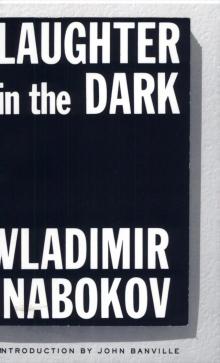 Laughter in the Dark
Laughter in the Dark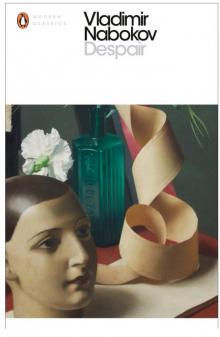 Despair
Despair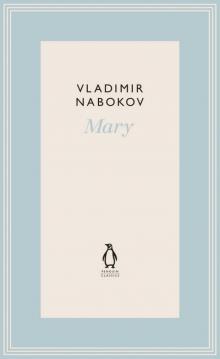 Mary
Mary The Enchanter
The Enchanter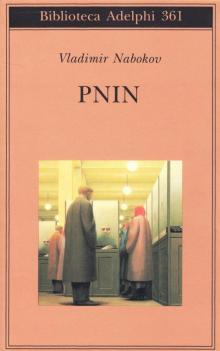 Pnin
Pnin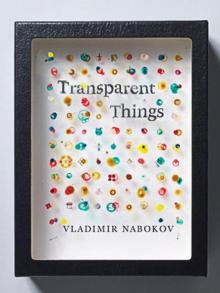 Transparent Things
Transparent Things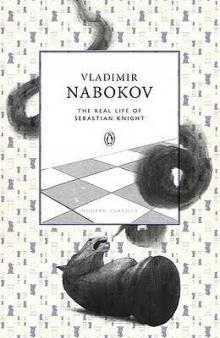 The Real Life of Sebastian Knight
The Real Life of Sebastian Knight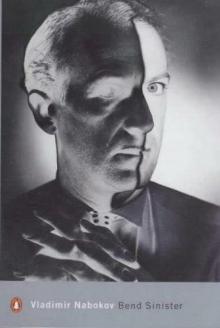 Bend Sinister
Bend Sinister Invitation to a Beheading
Invitation to a Beheading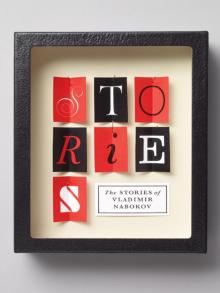 The Stories of Vladimir Nabokov
The Stories of Vladimir Nabokov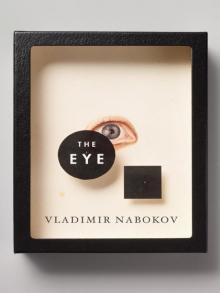 The Eye
The Eye Letters to Véra
Letters to Véra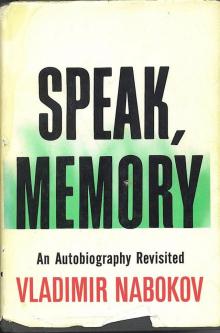 Speak, Memory
Speak, Memory The Gift
The Gift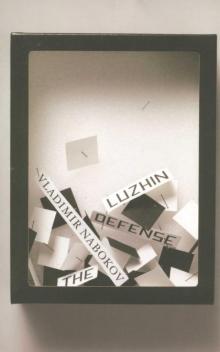 The Luzhin Defense
The Luzhin Defense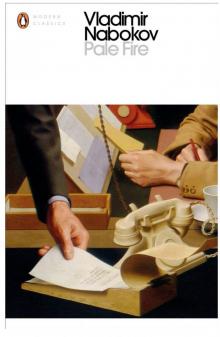 Pale Fire
Pale Fire Glory
Glory Man From the USSR & Other Plays
Man From the USSR & Other Plays Vladimir Nabokov: Selected Letters 1940-1977
Vladimir Nabokov: Selected Letters 1940-1977 Strong opinions
Strong opinions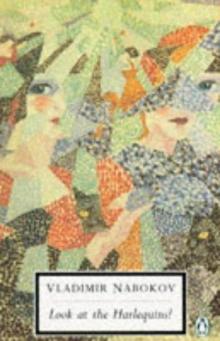 Look at the Harlequins!
Look at the Harlequins!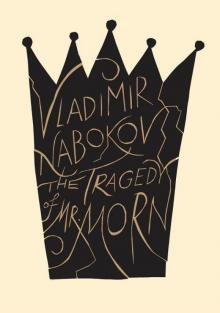 The Tragedy of Mister Morn
The Tragedy of Mister Morn Ada, or Ardor
Ada, or Ardor Lectures on Russian literature
Lectures on Russian literature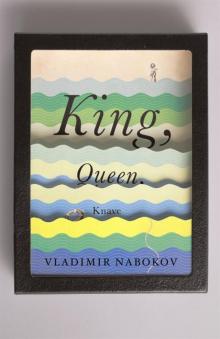 King, Queen, Knave
King, Queen, Knave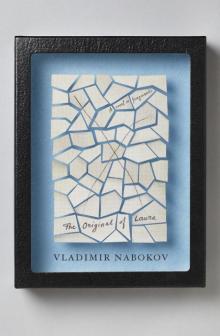 The Original of Laura
The Original of Laura